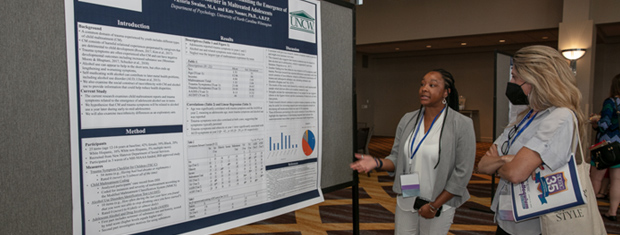




The APSAC Advisor is a peer reviewed quarterly news journal for professionals in the field of child abuse and neglect.
The APSAC Advisor provides succinct, data-based, practice-oriented articles that keep interdisciplinary professionals
informed of the latest developments in policy and practice the field of child maltreatment. It is designed to highlight
best practices in the field and publish original articles and current information about child maltreatment for professionals
from a variety of backgrounds including medicine, law, law enforcement, social work, child protective services, psychology,
public health and prevention in the U.S.
 If you wish to learn more about submitting an article to the Advisor, please click here.
If you wish to learn more about submitting an article to the Advisor, please click here.
This library contains Advisor issues dating back to the first issue in 1988. The most recent issue appears at the top.
Scroll down to select past issues by year and issue number. Once a publication appears in the box, you
can use the Enlarge button to open the document in a new window or tab (depending on how your browser is set up).
This will allow you to view the document with larger print.
To print a document, first use the Enlarge button to open the document in a new window or tab. Then use your browser's Print command.
To return here from a new tab, close the tab. To return from a new window, click your browser's Back button.
In the listing below, click on a year and issue number to see the articles in that publication.
2004 Number 1
Issues in Risk Assessment in Child Protective Services
In recent years, the child welfare field has faced mounting moral and political pressures to improve its effectiveness and accountability and to demonstrate its public value. In response, child welfare organizations throughout North America have expended millions of dollars to develop, implement, and institutionalize formal risk assessment systems. However, the literature continues to raise provocative and disturbing questions about all aspects of risk assessment technology and implementation. The question remains whether the results have been worth the investment.
A good child forensic interview is a neutral, information-gathering process intended for the courts. It is conducted by an open-minded investigator, who keeps multiple hypotheses in mind and avoids any rush to judgment. Whether forensic interviewers work in advocacy centers, law enforcement settings, medical facilities, or social work agencies, they function as neutral fact finders when they conduct interviews for the courts.
The purpose of Journal Highlights is to alert readers to current literature on child abuse. Selected articles from journals representing the variety of disciplines reflected in APSAC's membership are presented in the form of an annotated bibliography.
APSAC Advisor 16(1): Full Issue